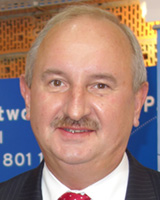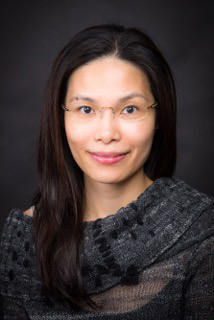
We are Exhibiting this week at ATW!
Come and visit our booth

Asian Transplantation Week (ATW) 2017 is taking place from October 18 (Wed) to 22 (Sun), 2017 at the Grand Hyatt Incheon, Incheon, Korea. This meeting is endorsed by The Transplantation Society and the Asian Transplantation Society.
Click here for more information on ATW
TTS-ISODP WEBINAR WEDNESDAY, NOVEMBER 1, 2017
CHALLENGES OF ABDOMINAL ORGAN RETRIEVAL

CHALLENGES OF ABDOMINAL ORGAN RETRIEVAL WEDNESDAY, NOVEMBER 1, 2017 - 10AM MONTREAL TIME / 3PM LEIDEN / 3PM FRANKFURT
 |
Speaker: Andrzej Grzegorz Baranski, MD. PhD, FEBS Senior Consultant in Transplant Surgery Abdominal Organ Procurement, General and Gastrointerstinal Surgery, Fellow of European Board of Surgery in the field of Multi-organ Retrieval, Kidney, Pancreas and Liver transplantation, Member of Education Committee of ESOT, Chairman of the ESOT - EDSM&BCSL Courses Department of Surgery Leiden University Medical Centre Leiden, The Netherlands |
 |
Moderator: Prof. Dr. med. Günter Kirste, MD Professor of surgery at the Albert Ludwigs University Freiburg retired Director of the German Procurement Organisation DSO Frankfurt, Germany |
|
The webinar will cover the following topics:
|
Click here for more information and to register.
Thursday, October 19, at 2 p.m. ET
Report dissemination webinar on improving organ donor intervention research

On Thursday, October 19, at 2 p.m. ET, the National Academies of Sciences, Engineering, and Medicine will host a report dissemination webinar to discuss the key messages of its new report Opportunities for Organ Donor Intervention Research: Saving Lives by Improving the Quality and Quantity of Organs for Transplantation.
The webinar will feature members of the authoring committee speaking about the report's recommendations for conducting organ donor intervention research in a way that maintains high ethical standards, ensures dignity and respect for deceased organ donors and their families, provides transparency and information for transplant candidates who might receive a research organ, and supports and sustains the public's trust in the process of organ donation and transplantation.
Click here for more information and to register.
Direct link to webinar signup page
FEATURED ARTICLE - Transplantation

Submitted by Dr Andrea Schlegel, Editorial Fellow, Transplantation.
Locoregional Therapy With Curative Intent Versus Primary Liver Transplant for Hepatocellular Carcinoma: Systematic Review and Meta-Analysis.
Murali AR, Patil S, Phillips KT, Voigt MD.
Transplantation. 2017 ;101(8):e249-e257.
This systematic review and meta-analysis from the University of Iowa analyses the impact of a loco-regional therapy with curative intent (CLRT) on the survival of patients with liver cirrhosis and HCC. Overall 48 studies were included with a total of 9,835 patients treated either with CLRT as a salvage procedure to liver transplantation (LT) compared to an immediate liver transplant. Patients were stratified by the stage of liver disease, extent of HCC, and whether salvage liver transplantation (SLT) could be offered.
Five-year patient survival and disease-free survival (DFS) was inferior for CLRT in combination with LT, when compared to primary LT. A sub-cohort of patients with Child-A cirrhosis and a single HCC lesion demonstrated comparable outcomes for 5-year overall survival comparing CLRT and SLT with primary LT.
Importantly, only a limited number of HCC patients (32.5%) received SLT when HCC recurred after previous CLRT. Thus, the majority had not been eligible for SLT, thus representing a selection bias that certainly impacted the favourable outcome for an immediate LT.
In conclusion, CLRT-SLT might be justified as a first-line therapy in patients with a single HCC and well-compensated cirrhosis compared to a primary LT; this approach may help to improve the overall utilization of available livers for transplant. Most relevant, a large proportion of patients with HCC recurrence after CLRT may not get to a life-saving salvage liver transplantation.
Young Members Corner
Life as a clinician-scientist in transplantation
 by Germaine Wong
by Germaine Wong
Transplant Nephrologist at Westmead Hospital / Associate Professor at the University of Sydney
It’s just past 10 pm at night, child in bed, and sound asleep. Charged with caffeine in one hand and laptop on my lap, now, it’s my time. Fifty emails in the Inbox and feeling guilty for my ‘slow response’. Grants deadline due in two days, struggling to get through the database with 200 different variables and possibly 100 interactions. Life as a clinician-scientist was never meant to be easy. I was once asked by my trainee why I ended up with the life I have now. Mind you, I am enjoying every single moment of it.
IN THE NEWS
UMBC and Johns Hopkins lead effort to extend viability of organs and body parts for transplant
October 12 - When someone’s body parts are donated, it’s a life-or-death race against the clock as hearts, lungs, livers and hands rapidly deteriorate outside the body. A trio of engineering and transplant experts from the University of Maryland, Baltimore County and Johns Hopkins University are leading an effort to extend that time and possibly transform the science of transplantation.
China accelerates training in organ donation
October 11 - In China, every after-death organ donation must get permission of family members. Since 2013, Liu has been a coordinator of organ donation at Beijing Youan Hospital, dealing with family approaches, organ donation and procurement, as well as funeral services. From November of 2017, along with 21 other medical specialists from Shanghai, Beijing, Guangzhou, Kunming, Wuhan and Nanchang, he will train postgraduate students in organ donation and transplants. Liu and his colleagues think the course is a key step for China to adopt a more professional approach to organ donation in line with international practice.
Team creates functional, stem-cell-derived small bowel segments
October 10 - Using human induced pluripotent stem cells (iPSCs), a Massachusetts General Hospital research team has bioengineered functional small intestine segments that, when implanted into rats, were capable of deliver nutrients into the bloodstream.
Scientists Have Successfully Reversed Advanced Heart Failure in Mice
October 10 - A team of researches from the Baylor College of Medicine in Houston, Texas have discovered a way to reverse severe heart failure, one of the leading causes of death from heart disease. The discovery, which involves “silencing” the Hippo pathway in the heart, could lead to better treatments for those at risk of heart failure — potentially ones that could eliminate the condition entirely.
High-dose influenza vaccine better for solid organ transplant recipients
October 9 - High-dose influenza vaccine is preferable to standard-dose vaccine in adult solid organ transplant recipients, according to study findings presented here at IDWeek.
Direct-Acting Antivirals: The Gold Standard for HCV Recurrence Following Transplantation?
October 11 - According to one of the largest studies of its kind published in the AJTn, the use of second-generation direct-acting antivirals (DAAs) is highly effective in treating recurrent hepatitis C virus (HCV) infection in patients having undergone liver-kidney transplantation (LKT), including those who are difficult to treat.
'Stumped' Documents Journey of Amputee & Transplantee Filmmaker
October 12 - Six years ago, Will Lautzenheiser was starting a job teaching film at Montana State University, when he started to feel a pain in his leg. After his first two classes, he went to the hospital where he went into total organ failure. In a matter of days, a strep infection had caused Will to lose his arms and legs. http://stumpedthemovie.com/
Recurrent UTIs Worsen Kidney Transplant Outcomes
October 5 - Recurrent urinary tract infections (UTIs) are associated with poorer graft and patient outcomes compared with noncurrent UTIs, researchers reported.
Predicting tacrolimus concentrations in children receiving a heart transplant using a population pharmacokinetic model
October 7 - Immunosuppressant therapy plays a pivotal role in transplant success and longevity. Tacrolimus, a primary immunosuppressive agent, is well known to exhibit significant pharmacological interpatient and intrapatient variability. This variability necessitates the collection of serial trough concentrations to ensure that the drug remains within therapeutic range.
Join us for this innovative but also challenging comprehensive scientific program that will cover all important topics in reconstructive transplantation. A professional conference venue in the charming city of Salzburg has been identified already to host our varied program. We look forward to welcoming you in Salzburg,
Contact
Address
The Transplantation Society
International Headquarters
740 Notre-Dame Ouest
Suite 1245
Montréal, QC, H3C 3X6
Canada
Используйте Вавада казино для игры с бонусом — активируйте промокод и начните выигрывать уже сегодня!

